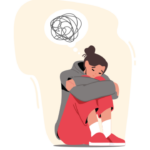
This fact puts our countries in a club whose membership is rapidly shrinking. Twenty-seven countries worldwide have already restricted the use of glyphosate, to a greater or lesser extent, or outright banned it. These countries are responding to a worldwide campaign that has strengthened as more studies identify the chemical to be – as the World Health Organization’s International Agency for Research on Cancer in 2015 stated – “probably carcinogenic to humans.” With glyphosate being sprayed on our produce and sometimes wafting in the air adjacent to organic farming regions, parks, golf courses, and around our homes, the public is concerned. Glyphosate is associated with many health issues, and it has also been shown to affect brain development in children.
Nations that have declined to stop or reduce the use of glyphosate cite reduced farm yields, and adverse environmental impacts stemming from increased plowing and tilling. Agricultural interests point out that banning glyphosate will force farmers to rely on other chemicals that also have a reputation for toxicity. So, perhaps the most recent victory in this long, continuing battle is that states, provinces, cities, and towns have stepped up to act where our nations have not. That’s true in many communities in 21 states, including agricultural giants such as California, Florida, and Texas. In Canada, eight out of the ten provinces have some form of restriction on the use of pesticides that include glyphosate, and the city of Vancouver won’t allow its use in public spaces unless invasive weeds have become established.
These bans show us that it’s more important than ever for concerned citizens – wherever we may live – to “think globally but act locally.” If you’ve got Roundup on your shelf, safely rid yourself of it and investigate newer and healthier ways to keep your garden weed free. Educate your neighbors and friends of glyphosate’s risks. If your town hasn’t taken action to at least reconsider its stance on Roundup use, a visit to your elected representatives or city employees may be in order. Now is the time to take a stand against this toxic form of farming and weed control and look up to other countries who have successfully stopped using glyphosate.













